English Grammar में Subject-Verb Concord या Subject-Verb Agreement का अर्थ है: Verb हमेशा अपने Subject के साथ number (Singular / Plural) और Person (First / Second / Third) में मेल खाती है।
-
यदि Subject singular है → Verb singular होगी।
-
यदि Subject plural है → Verb plural होगी।
इसी को Concord कहा जाता है।
यह Topic Class 10 के RBSE Board Exam में अक्सर पूछा जाता है।
Detailed Rules of Subject-Verb Concord
Rule 1: Singular Subject → Singular Verb
Hindi: जब Subject एकवचन हो, तो Verb भी एकवचन होगी।
Examples:
-
She writes a letter.
-
He goes to school daily.
-
A boy was playing in the ground.
-
The teacher teaches us English.
Rule 2: Plural Subject → Plural Verb
Hindi: जब Subject बहुवचन हो, Verb भी बहुवचन होगी।
Examples:
-
They are studying.
-
Girls sing songs.
-
The players were tired.
-
We have completed our homework.
Rule 3: Verb agrees with Subject, not Object
Examples:
-
The quality of mangoes is good. (Subject = quality)
-
The students of this school are hardworking. (Subject = students)
-
The colour of these pens is black.
Rule 4: Two Subjects joined with ‘and’ → Plural Verb
Examples:
-
Ram and Shyam are friends.
-
My father and mother have come.
-
Gold and silver are precious metals.
Exception: जब “and” से जुड़े Subjects को एक Unit या एक ही Idea माना जाए → Singular Verb.
-
Bread and butter is my breakfast.
-
Slow and steady wins the race.
Rule 5: Subjects joined by ‘or’, ‘either…or’, ‘neither…nor’
Verb हमेशा पास वाले Subject से Agree करेगी।
Examples:
-
Either Mohan or his friends are guilty.
-
Neither the teacher nor the student was present.
-
Either the boys or the girl is responsible.
Rule 6: Indefinite Pronouns
Always Singular: Everyone, Someone, Anyone, Nobody, Each, Either, Neither
-
Everyone is happy.
-
Each boy has a pen.
-
Neither of the two was correct.
Always Plural: Few, Many, Several, Both
-
Few have passed the exam.
-
Both were absent.
-
Many are waiting for the bus.
Rule 7: Collective Nouns
Collective Nouns (team, family, jury, committee, crowd) → Singular या Plural, दोनों हो सकते हैं।
-
The jury is giving its verdict. (एक समूह = Singular)
-
The jury are divided in their opinion. (व्यक्तिगत सदस्य = Plural)
-
The family is large.
-
The family are fighting among themselves.
Rule 8: Uncountable Nouns → Singular Verb
Water, Milk, Sugar, Rice, Oil, Honesty, Advice जैसे nouns uncountable होते हैं और Singular Verb लेते हैं।
Examples:
-
Milk is good for health.
-
Honesty is the best policy.
-
His advice was useful.
Rule 9: Plural Nouns with Singular Meaning → Singular Verb
Mathematics, Economics, Physics, News, Politics, Measles जैसे words दिखने में plural हैं लेकिन singular meaning रखते हैं।
Examples:
-
Mathematics is an easy subject.
-
The news is shocking.
-
Politics is a dirty game.
Rule 10: Distance, Weight, Time, Amount → Singular Verb
Examples:
-
Ten kilometres is a long distance.
-
Five hundred rupees is enough.
-
Two years is a short time.
Rule 11: Titles of Books, Films, Newspapers → Singular Verb
Examples:
-
“Gulliver’s Travels” is an interesting book.
-
“The Times of India” is a popular newspaper.
-
“Three Idiots” is my favourite movie.
Rule 12: With ‘Each of’ / ‘Every’ → Singular Verb
Examples:
-
Each of the students was present.
-
Every man and woman has equal rights.
-
Every boy and girl is happy.
Rule 13: Fractions and Percentages
Verb subject पर depend करती है।
Examples:
-
One-third of the cake is eaten.
-
Two-thirds of the students are present.
-
Fifty percent of the work is done.
Rule 14: Nouns Always Plural → Plural Verb
Scissors, Trousers, Spectacles, Shoes, Police, People → हमेशा plural माने जाते हैं।
Examples:
-
The scissors are sharp.
-
The trousers are new.
-
The police are investigating the case.
-
The people are angry.
Rule 15: Formal Expressions (with There, Here, It)
Verb subject के number से agree करेगी।
Examples:
-
There is a pen on the table.
-
There are books on the table.
-
It is my duty.
Extra Examples (Exam Practice) for Subject-Verb Concord
-
He goes to school.
-
We play cricket every day.
-
Mathematics is difficult but interesting.
-
The news was very sad.
-
Neither of the boys was present.
-
Either you or your friends are responsible.
-
The family are quarreling among themselves.
-
Five years is a long time.
-
Honesty is always rewarded.
-
Many students have passed the test.
Quiz on : Subject-Verb Agreement : 10 Multiple Choice Questions for Class 10 & Subject-Verb Agreement Quiz-2 : 15 MCQs
निष्कर्ष :-
Subject-Verb Concord का सही प्रयोग English grammar की रीढ़ है।
👉 Class 10 students को याद रखना चाहिए:
-
Verb हमेशा subject के साथ agree करेगी, object के साथ नहीं।
-
Singular subject = Singular verb, Plural subject = Plural verb।
-
कुछ special cases (collective nouns, uncountables, titles, measurements) को अलग से याद रखना ज़रूरी है।
FAQs (Exam-Oriented) on Subject-Verb Concord
Q1. What is Subject-Verb Concord?
It means verb must agree with subject in number and person.
Q2. Which verb is correct: “Each of the boys is/are”?
Correct → “Each of the boys is present.”
Q3. Does ‘police’ take singular or plural verb?
Police is always plural → “The police are investigating.”
Q4. What verb is used with uncountable nouns?
Always singular. Example: Milk is good.
Q5. What is the exception with ‘and’?
When subjects form one idea/unit, verb is singular. Example: “Bread and butter is my breakfast.”
Discover more from Gyankundli
Subscribe to get the latest posts sent to your email.

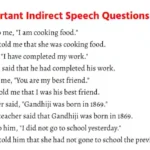




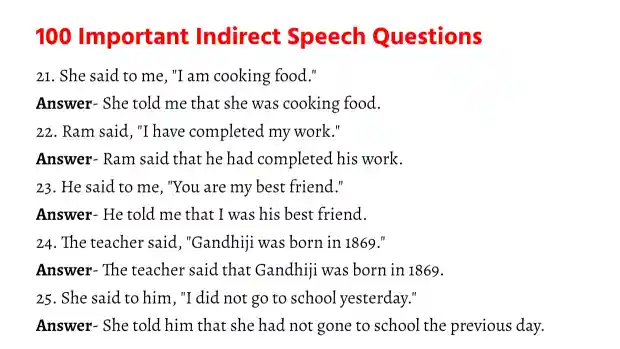
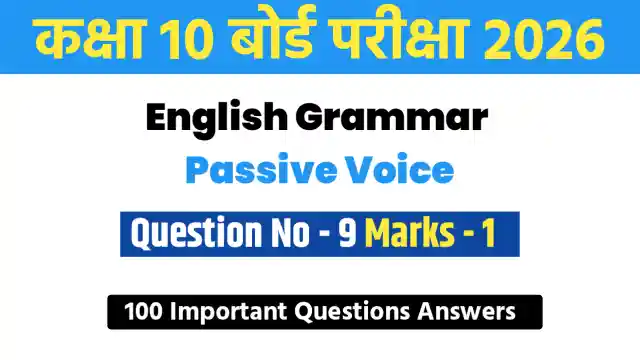
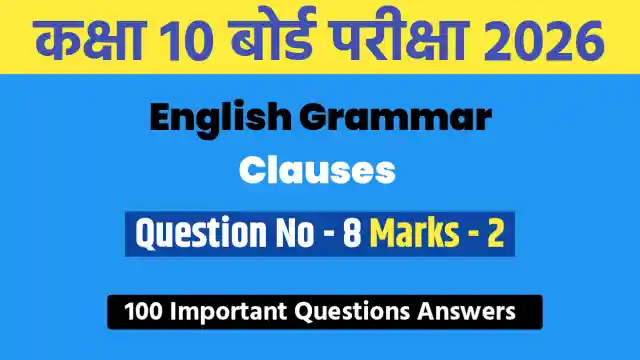

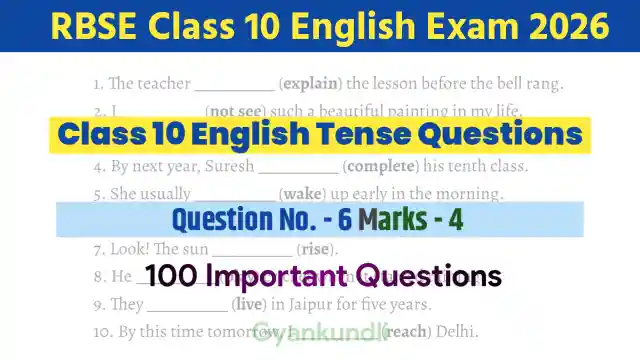






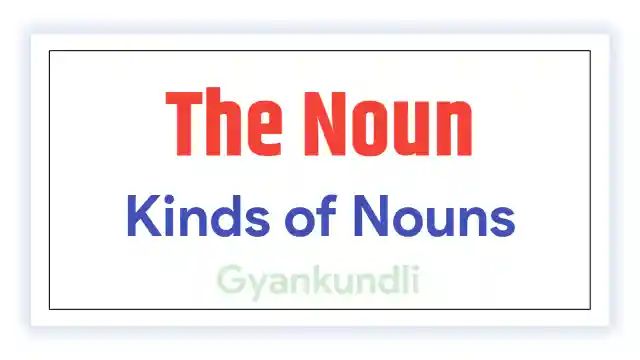

1 thought on “Subject-Verb Concord (Agreement of Verb with Subject) – RBSE Class 10 English Grammar”